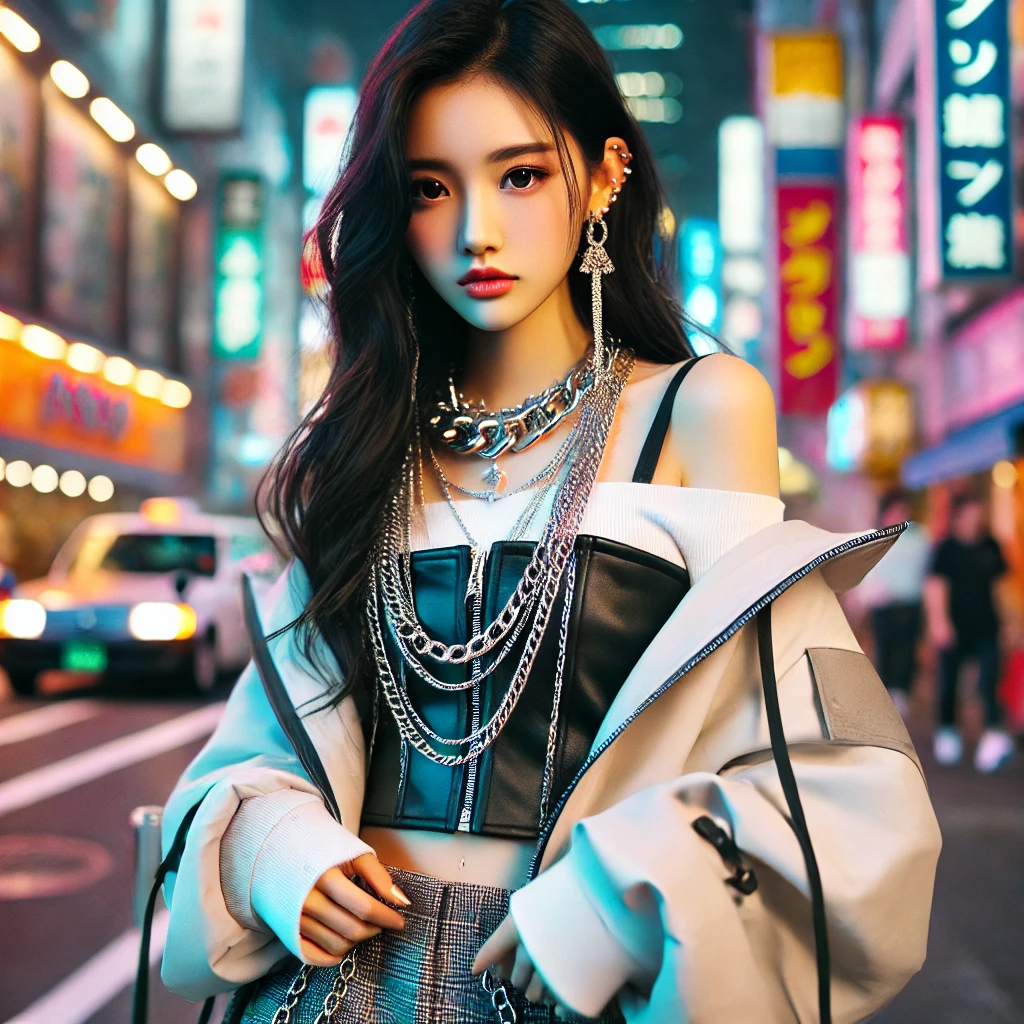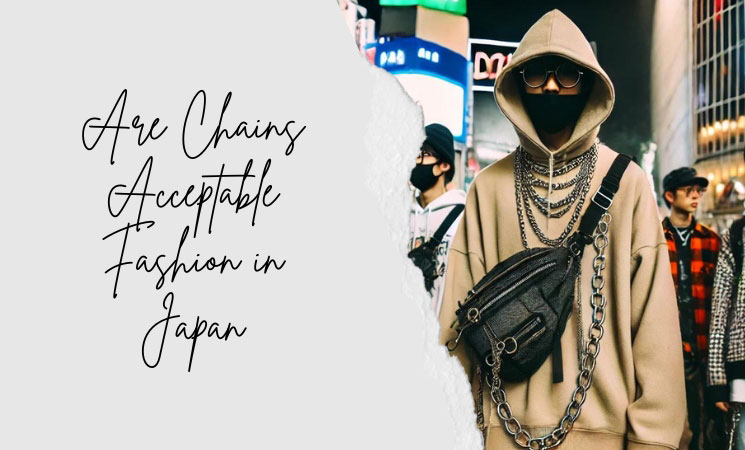Fashion is a constantly evolving phenomenon, often influenced by cultural, historical, and social factors. In Japan, a country known for its vibrant and ever-changing fashion landscape, the role of accessories like chains can be both significant and ambiguous. This article delves into Are Chains Acceptable Fashion in Japan considering their cultural and historical importance while also looking at modern trends.
Cultural Impression of Chains in Japan
Japanese fashion is a unique blend of the traditional and the modern, with a focus on innovation and trendsetting. Chains, as a fashion accessory, have found a place in this diverse landscape. However, their acceptance is deeply intertwined with Japan’s cultural beliefs and societal norms.
Japan’s fashion freedom allows for the bold expression of individuality. This is evident in subcultures like Harajuku, which embraces provocative styles. In such groups, chains are a natural fit for the punk and street fashion scenes, where they are viewed as symbols of rebellion and uniqueness.
History of Chains in Japanese Fashion
The journey of chains in Japanese fashion is rooted in the fusion of traditional kimono styles with Western influences. Chains became especially popular in the 1980s and 1990s, during the rise of punk and street fashion. These subcultures saw chains as rebellious symbols and readily embraced them. The influence of Western music, particularly rock and punk, also contributed to the widespread use of chains as fashion accessories in Japan.

Contemporary Trends in Chains
In today’s Japanese fashion, chains continue to hold relevance. They are widely used in contemporary styles, from simple adornments to intricate designs. Chains can be seen in high-end fashion brands, where they are used to add a touch of sophistication or edge to outfits. From head to toe, chains enhance the versatility of Japanese fashion, making them a dynamic accessory.
Top designers often incorporate chain elements into their clothing lines to create bold and fashionable looks. Chains have become synonymous with creativity and modernity in Japanese fashion, allowing designers to push the boundaries of style.
Chains in Youth Fashion and Subcultures
Chains play a significant role in Japanese youth fashion and subcultures. For many, chains symbolize rebellion and individuality. Subcultures like Visual Kei and Gothic Lolita heavily feature chains as part of their extreme and flamboyant fashion statements. In these styles, chains are used not only as accessories but also as essential elements that break away from conventional fashion norms.
Visual Kei, with its dramatic and avant-garde aesthetic, often incorporates chains into elaborate outfits. Similarly, Gothic Lolita, known for its dark and intricate designs, uses chains to enhance the uniqueness of the style. Harajuku’s youth culture also embraces chains, blending them into the colorful and eclectic street fashion scene.
Chains in High Fashion: Japanese Designers
Chains have made their way into high fashion, with top Japanese designers incorporating them into their collections. Designers like Yohji Yamamoto and Rei Kawakubo have used chains to create futuristic and unconventional looks. Chains add a bold, modern twist to high fashion, demonstrating their versatility across different fashion genres.
Chains in Business and Formal Contexts
While chains are widely accepted in everyday wear and sportswear, their place in business and formal attire can be more contentious. Chunky and oversized chains may not be appropriate for professional settings, but subtle and elegant chains can still be incorporated into formal outfits.
For instance, a delicate necklace or a chain-link bracelet can complement business attire, adding a touch of personality without being overpowering. In formal contexts, it’s important to strike a balance between expressing individuality and adhering to the expected norms of the setting.
FAQs About Are Chains Acceptable Fashion in Japan
Are Chains a Common Fashion Accessory in Japan?
Yes, chains are widely embraced as a fashion accessory in Japan, particularly in urban fashion hubs like Harajuku. They add an edgy and stylish flair to outfits, making them a popular choice among fashion-forward individuals.
What Types of Chains Are Popular in Japanese Fashion?
In Japanese fashion, a variety of chains are favored, including delicate necklaces, bold statement pieces, layered chains, and functional accessories like belt chains and wallet chains. These different styles allow for creative expression in both everyday wear and more eclectic fashion choices.
Are There Any Cultural Considerations When Wearing Chains in Japan?
Though chains are generally accepted in fashion, context matters. In more formal or traditional settings, it’s advisable to avoid overly flashy or heavy chains, as they may not align with the cultural norms of these environments.
How Do Japanese Fashion Trends Incorporate Chains Into Outfits?
Japanese fashion trends utilize chains in versatile ways, from enhancing streetwear looks to complementing minimalist outfits. Chains are also frequently featured in gothic and punk-inspired ensembles, adding a distinctive touch to these unique styles.
Can Both Men and Women Wear Chains as Part of Their Fashion in Japan?
Absolutely. Chains are a unisex accessory in Japan, allowing both men and women to incorporate them into their fashion. They can be styled to suit various gender expressions and individual fashion preferences.
Conclusion
In conclusion for Are Chains Acceptable Fashion in Japan? Chains are a beloved fashion accessory in Japan, embraced by a range of communities and subcultures. Their versatility allows them to be a key part of styles ranging from bold street fashion to avant-garde high fashion. While their suitability in formal or business settings may be more limited, chains continue to be a significant and influential component of Japanese fashion.














